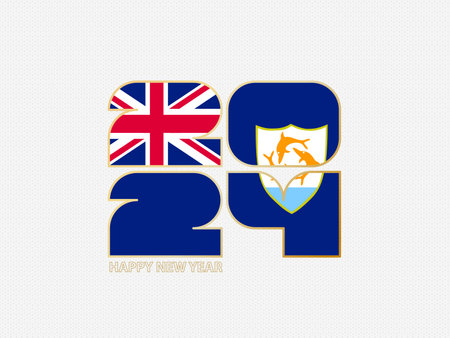Introduction to British Networking Culture
In the dynamic world of UK business, networking is more than just exchanging business cards or making small talk at events—it is a cornerstone of entrepreneurial success. British networking culture is distinct, shaped by centuries-old traditions that value politeness, discretion, and building trust over time. Unlike some other markets where directness or aggressive self-promotion might be expected, British entrepreneurs thrive by mastering subtlety and respect in their professional interactions. Understanding these unique aspects is vital for any entrepreneur looking to establish meaningful connections and sustainable partnerships within the UK. Etiquette isn’t just a matter of good manners; it’s an essential tool that influences first impressions, fosters mutual respect, and ultimately determines the success or failure of new business relationships. By appreciating and practising traditional British networking etiquette, entrepreneurs can unlock doors to opportunities while avoiding common pitfalls that may inadvertently harm their reputation or prospects.
2. The Importance of First Impressions
In the UK, first impressions can make or break a business relationship. British professionals place significant value on subtlety, respect, and decorum when meeting new contacts. Understanding how to present yourself at networking events is crucial for entrepreneurs looking to build trust and credibility from the outset.
Greetings: Politeness Matters
When introducing yourself, a firm but not overpowering handshake, steady eye contact, and a polite greeting such as “How do you do?” or “Pleased to meet you” are standard. Avoid overly familiar gestures like hugs or backslaps unless you have established rapport over time. It’s also customary to use titles and surnames until invited to do otherwise.
Dress Codes: Smart and Subtle
British business attire tends to err on the side of formality and understatement. A well-tailored suit in neutral colours (navy, grey, or black) is generally expected in most professional settings. For less formal events, business casual is acceptable but should remain neat and conservative. Here’s a quick reference:
| Event Type | Recommended Attire |
|---|---|
| Formal Networking | Suit & Tie (Men), Suit/Smart Dress (Women) |
| Business Casual Event | Blazer & Trousers/Skirt (Men & Women) |
| Informal Gathering | Neat Shirt/Blouse & Trousers/Skirt |
Cultural Nuances: Subtle Signals of Respect
Punctuality is non-negotiable—arriving even five minutes late can be perceived as disrespectful. Always wait your turn to speak in group settings, as interrupting is frowned upon. Small talk about the weather or current affairs helps break the ice, but steer clear of personal topics or direct questions about money during initial meetings.
Summary Table: Key Strategies for Making a Strong Entrance
| Aspect | Do | Dont |
|---|---|---|
| Greeting | Handshake, polite language, use titles | Avoid hugs, first-name basis too soon |
| Attire | Dress smartly in neutral colours | Avoid flashy or casual clothes |
| Punctuality & Conversation | Be on time, engage in light small talk | Avoid lateness, personal/money topics early on |
Mastering these elements not only demonstrates professionalism but also shows your respect for British traditions—essential for entrepreneurs aiming to succeed in the UK’s business landscape.

3. How to Engage in Polite Conversation
Mastering the art of polite conversation is essential for entrepreneurs navigating traditional British networking events. Small talk acts as the gateway to building professional relationships in the UK, but it requires both subtlety and awareness of local preferences. Begin by gently initiating conversation with neutral topics such as the weather—a classic British opener—or shared experiences at the event. Steer clear of overly personal questions or controversial subjects like politics, religion, or money, as these can be considered impolite or intrusive. Instead, focus on open-ended questions that encourage dialogue while respecting boundaries, such as “What brings you to this event?” or “Have you attended similar gatherings before?” Remember, British communication often favours understatement over overt enthusiasm; avoid dominating the discussion or being excessively self-promotional. Listening attentively and using polite affirmations (“That’s interesting,” “I see what you mean”) help establish rapport and trust. By balancing friendliness with restraint, entrepreneurs can foster genuine connections while adhering to the subtleties of traditional British networking etiquette.
4. Building Relationships without Overstepping
In the UK, building professional relationships is a gradual process that relies heavily on trust, mutual respect, and subtlety. Entrepreneurs must be mindful of traditional British networking etiquette to avoid overstepping boundaries. Here are some best practices for exchanging business cards, following up, and forming connections while maintaining proper decorum:
Exchanging Business Cards: A Polite Introduction
| Best Practice | British Etiquette Tip |
|---|---|
| Offer business cards at the end of a conversation | This shows genuine interest rather than a transactional approach |
| Present your card with one hand, facing the recipient | Avoid flamboyance; keep gestures reserved and professional |
| Accept cards graciously and take a moment to glance at them | This demonstrates respect for the other party’s details and role |
Following Up: Timing and Tone Matter
- Follow up within 24–48 hours: A short, polite email referencing your discussion is well received. Avoid overly familiar language or excessive enthusiasm.
- Respect privacy: Do not add new contacts to newsletters or marketing lists without their consent. The British value discretion and may see this as intrusive.
- Keep messages concise: Focus on shared interests or next steps mentioned during your meeting—avoid pressuring for immediate results.
Forming Connections While Respecting Boundaries
- Avoid personal questions early on: Topics such as family or finances are considered private until a stronger rapport is established.
- Pace your relationship-building: Allow time for trust to develop organically. Pushing too hard can be counterproductive in the UK’s conservative business culture.
- Observe cues: If someone seems reserved or hesitant, give them space. Forced intimacy is rarely appreciated.
The British Networking Balance Sheet: Key Dos and Don’ts
| Dos | Don’ts |
|---|---|
| Be punctual and prepared for meetings | Avoid oversharing personal information early on |
| Express gratitude after meetings or introductions | Do not pressure contacts into immediate decisions or commitments |
| Maintain professionalism in all communications | Avoid unsolicited phone calls outside working hours |
| Respect privacy and data protection norms (e.g., GDPR) | Avoid adding contacts to promotional lists without permission |
The cornerstone of successful British networking lies in respecting boundaries, valuing privacy, and fostering relationships with patience and professionalism. By adhering to these traditional etiquette guidelines, entrepreneurs can build meaningful connections that stand the test of time in the UK market.
5. Common Pitfalls and How to Avoid Them
Breaking into the UK networking landscape can be daunting for entrepreneurs unfamiliar with its traditions. There are several common pitfalls that newcomers often encounter, but with a sharp eye on etiquette and a methodical approach, you can sidestep these missteps and make a strong impression.
Overly Aggressive Self-Promotion
British networking events value modesty and subtlety over brash self-promotion. Entrepreneurs who launch straight into sales pitches or dominate conversations risk alienating potential contacts. Instead, focus on building rapport—ask thoughtful questions, listen actively, and introduce your business only when appropriate.
Neglecting Follow-Up Etiquette
A handshake and pleasant chat are just the start; failing to follow up is a missed opportunity. However, bombarding new contacts with messages or immediate requests for meetings is frowned upon. Send a concise, polite email referencing your conversation within 24-48 hours, expressing appreciation and suggesting a future catch-up if mutually beneficial.
Misreading Formality Levels
Entrepreneurs sometimes misjudge how formal to be at British networking events. While politeness is crucial, overly stiff formality can feel insincere, while excessive informality may seem disrespectful. Mirror the tone of the event—if in doubt, err on the side of courteous professionalism and adjust accordingly as relationships develop.
Ignoring Subtle Social Cues
The British are renowned for their indirect communication style and use of understatement. Overlooking non-verbal cues such as body language or hesitancy in conversation can lead to awkward moments. Pay close attention to signals—if someone seems keen to move on, gracefully conclude the interaction rather than overstaying your welcome.
Practical Advice for Avoiding Faux Pas
- Observe before you engage: Take a few minutes to watch how others interact and adapt your approach.
- Prepare a succinct introduction: A brief, value-focused summary of what you do prevents rambling.
- Avoid controversial topics: Steer clear of politics or personal matters unless invited to discuss them.
- Always express gratitude: Thank hosts and new connections genuinely at the end of an event.
Summary
Mastering traditional British networking etiquette requires patience, observation, and adaptability. By sidestepping these common pitfalls and approaching every interaction with respect and authenticity, entrepreneurs will find themselves welcomed into valuable business circles across the UK.
6. Tips for Long-term Networking Success
Building and sustaining a professional network within the UK business landscape requires more than just initial introductions; it demands ongoing, genuine engagement. Below are essential recommendations tailored to traditional British networking etiquette for entrepreneurs aiming at lasting success.
Stay Consistently Engaged
British business culture values subtlety and consistency over overt self-promotion. Follow up meetings with a concise thank you email or message, referencing specific points from your conversation. Periodically check in with contacts—perhaps by sharing relevant articles or updates that align with their interests—without overwhelming them.
Nurture Relationships Respectfully
Avoid aggressive pursuit of opportunities or excessive requests, as this can be seen as pushy in the UK. Instead, cultivate trust by showing genuine interest in your contacts’ ventures and offering support when appropriate. Attending industry events and inviting contacts to low-pressure gatherings such as coffee meetings help reinforce connections naturally.
Leverage Networks Subtly and Ethically
Referrals and introductions should be requested thoughtfully. When seeking connections, always ask permission before using a contact’s name or details, respecting privacy and confidentiality—a hallmark of British professionalism. Equally, be prepared to reciprocate; offer introductions within your own network where beneficial.
Build Your Reputation Gradually
Your reputation is your currency in the British business environment. Maintain reliability by honouring commitments, arriving punctually to meetings, and delivering on promises. Over time, this approach will solidify your standing as a trusted collaborator.
Adapt Communication Styles
Adjust your tone based on the context: formal emails for initial correspondence, more relaxed language as relationships develop. Politeness remains paramount; always use appropriate greetings and sign-offs, mirroring the communication style of your contacts.
In summary, successful long-term networking in the UK hinges on respect, subtlety, and reciprocity. By focusing on authentic relationship-building rather than transactional interactions, entrepreneurs can harness the full potential of their networks while honouring traditional British business etiquette.


